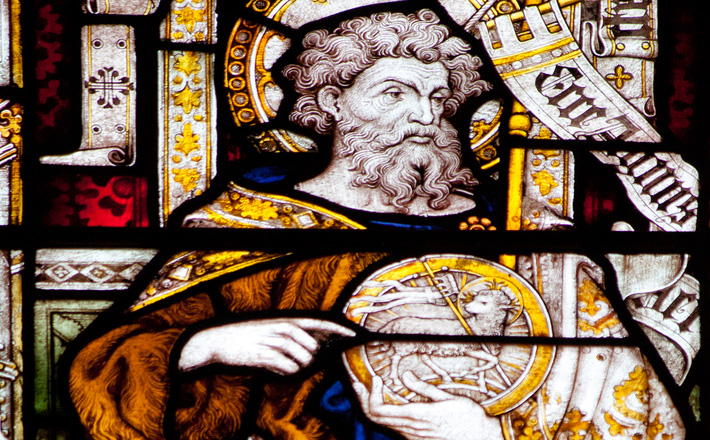Commentary on Isaiah 49:1-7
As always, it’s important here to state the big story at work in Isaiah in order to grasp the power of Isaiah’s proclamation in chapter 49.
God’s people have been defeated, their temple destroyed. They are taken in chains to Babylon, alienated from their land and their God. This exile is a crisis of identity and faith. Are they still God’s people? How can they worship in this foreign land?
Into this crisis, Isaiah speaks a word of hope in these chapters. God will send a servant who will do justice. Indeed, it appears that much of second Isaiah (chapters 40-55) addresses the return of the Israelites to their homeland and the promise of a restored temple and nation. The disorientation of exile is replaced by a new orientation that is more than just returning to the way things were before exile. God has something much more in mind.
Isaiah shouts this news from the rooftops. If the first verse were an online blog, it would be in all caps. He has a message not for Israel alone, but for the whole world, even “you peoples far away” (verse 1). And this message is from God: God has raised up a servant, one hidden and unknown, a nobody. God has made this servant the instrument of God’s glory (verse 3).
From Rahab to David to Mary, the story of God’s people is full of unlikely servants raised up by God. This is a recurrent theme in scripture, and we want to notice it here. The servant is called while still in the womb, hidden and invisible. The Lord hides the servant “in the shadow of his hand” and “in his quiver” (verse 2).
In this case, the servant, too, is hidden even from himself as an agent of God. The servant stands disbelieving in the face of God’s call, blinded by self-condemnation to God’s purposes. He confesses a life “labored in vain,” spent “for nothing and vanity” (verse 4).
God acknowledges as much in verse 7, agreeing that this servant is “one deeply despised, abhorred by the nations, the slave of rulers.” This servant, first invisible and then despised, will nevertheless be recognized by the powerful, by kings and princes, because the Lord, “the Holy One of Israel, has chosen you” (verse 7). For the preacher this is a great opportunity to talk about how God calls unlikely servants and, perhaps more importantly, how often those servants do not recognize themselves as such.
God has a direction this story is going, insistently toward the restoration of Jacob, “the survivors of Israel” (verse 6). The decades of exile produced a diaspora with tribes scattered from Mesopotamia to Egypt, trying to scratch out a life. God’s purpose is to “raise up the tribes of Jacob” (verse 6), “that Israel might be gathered to him” (verse 5). God intends for Israel to be restored as a people with one another and with God. Their exile is not the end of the story.
We can imagine this proclamation falling on the ears of Israel with a sigh of relief. And if this passage was only about restoring Israel, that would be impressive enough within the dramatic narrative of Babylonian exile. But wait, there’s more! God doesn’t get stuck there.
This passage moves from the very particular and powerful deliverance of Israel to an even larger mission. In an astonishing phrase God says that this restoration of Israel is “too light a thing” (verse 6) in and of itself. God’s people do not exist for themselves alone, nor is their restoration an end in itself.
God gathers God’s people into God’s life for one purpose: the salvation of the world. God charges Israel, God’s servant, to be “a light to the nations, that my salvation may reach to the end of the earth” (verse 6). God takes seriously the particular historical moment of Israel in exile and God doesn’t get stuck in that particular historical moment. Just as exile isn’t the end of the story, neither is restoration.
The long arc of God’s story points toward the restoration of all creation. “The Holy One, who has chosen you” (v. 7) calls Israel to inhabit not only its homeland, but its identity as God’s blessing for the world.
God doesn’t get stuck in the tidy resolutions to our crises that we think end the story. We often believe that if things turn out okay, the story is over. If the church makes budget, then “whew, thank God, that was close!” If we get through a health scare, we are humbled and grateful.
Yet God is not done. These so-called endings are beginnings, each a new horizon of possibility. Not for ourselves alone, but for the world God loves.
Restoration of individuals, or churches, or even of an entire people, is never only about that. God’s healing work moves outward, always expanding toward eschatological fulfillment, “that my salvation may reach the end of the earth” (verse 6). God’s story is always bigger than ours, holding our stories within God’s life and weaving them into the wide-open future.


January 19, 2014